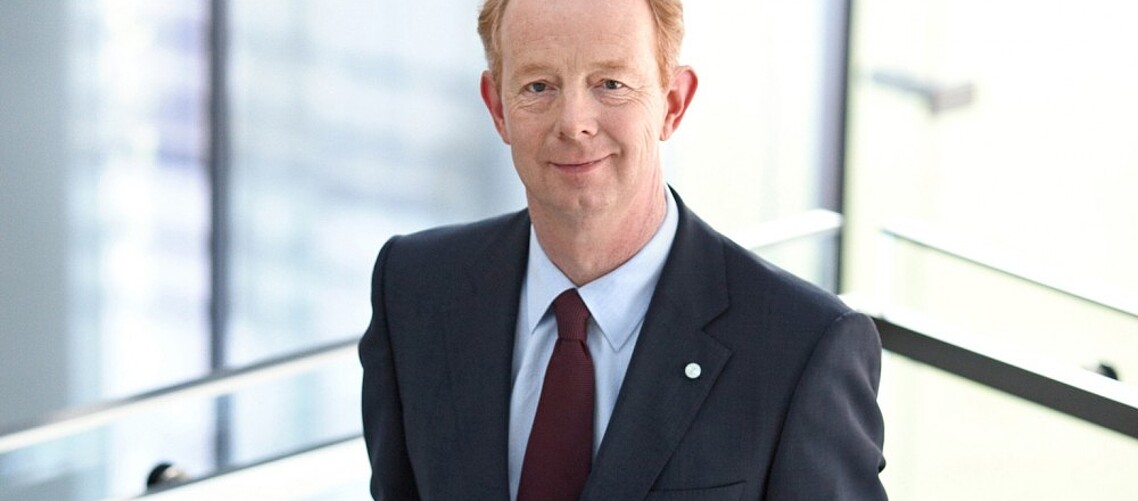Russell Gilbert: You opened your keynote address at the RSM Leadership Summit by reflecting on the fact that the nature of “leadership” is changing for a variety of reasons. How and why is it changing?
Marijn Dekkers: Globalisation has changed leadership. There are a number of ways in which this has happened, so let me touch on three of the most important factors. First, you can no longer just do business in one country, and very few big companies do. If you come up with a good idea, it’s natural today to take it global. That means dealing with different countries and different cultures, and that has a major effect on leadership. At the same time, the more global you become the more diverse your own workforce becomes.
At Bayer, we traditionally had a lot of executives from Germany going to countries like Mexico and China where they’d take on top jobs there. In a world where having a very good sensitivity for local culture is essential if you want to succeed in local markets, that approach doesn’t work anymore. Instead, you have to bring up people from the countries you’re doing business in and train them internationally while making sure they become ready to take on top jobs in their homeland. For me, the need for cultural sensitivity is a very big part of why and how leadership is changing.
A second factor is that a lot of employees, and particularly younger ones, want to be intrapreneurs. We heard exactly that from the audience during the Q&A session following my presentation today: a number of people said they want to become social entrepreneurs, but to do it in the context of a big company. Today people have a very clear idea of what they want their work life to look like. They’re not so in tune with the “command and control” hierarchical management system where the boss tells them what to do everyday. So how do you create space in an organisation for intrapreneurs? That requires a new approach to leadership.
The third factor is communication. Long gone are the days of top-down, one-way communication where the boss sends a letter to all employees telling them what’s happening in the company. The way we interact today – not just with employees, but also with external stakeholders – is so dynamic. With the internet, and especially with social media, news travels all over the world in a micro-second. That requires a lot of adaptation, particularly in more conventional business environments.
Relative to your comments about globalisation and the need for cross-cultural sensitivity, you said in a recent Harvard Business Review article that: ‘In a world where no one ever has a monopoly anymore, it isn’t about differentiating with a better aspirin. It is about a company’s ability to deeply build a profound affinity with a country – every country. That’s what being global means.’ Can you expand upon that?
I’d be glad to. Your affinity with a country has to be seamless – otherwise you cannot do business optimally in that country. Countries no longer like it if a bunch of Western European business people just turn up and try to sell their stuff there, and nowadays that also includes China. Also, local people working for Western firms don’t like it if there is no obvious upward momentum in the organisation or if there is not enough sensitivity for local customs, culture and business needs.
This is a huge challenge in many ways. To touch on the point I made earlier, part of that challenge is to work out how you’re going to bring local employees up to speed in the organisation to such an extent that not only can they become leaders in their own country, but that they also have enough sensitivity to understand what it means to work for a global company – with all the complexities that involves, including having an affinity with headquarters.
It means you have to move people around to different parts of the world with the view that at some point they’ll return home to take up a leadership position. Taking this approach has become much more important than it was just 10 years ago. Back then the attitude was that the Chinese, for example, just needed to buy our products. Therefore whether you sold your products with a Chinese or German accent didn’t seem to make a difference. That’s not true anymore.
As well as looking to develop cultural diversity by growing leaders who have this deep cultural sensitivity, what is Bayer’s perspective on gender diversity in top positions? I ask as I’ve read that your approach towards leadership development is to bundle the issues of nationality and gender together. How does this work?
MD: Basically I don’t want an environment where diversity is just about gender. It’s just as important to have diversity of thought and diversity of culture, and particularly the latter given all the countries the company works in. Instead of thinking of diversity as just being about gender, we moved away to take a much broader perspective in which cultural diversity is just as important as gender diversity.
Having said that, in your presentation you pointed out that Bayer had only just recently appointed the first woman to the executive board, something that’s taken the company 152 years to do. What do you say to critics who ask why it’s taken so long?
I should explain that this appointment was to the management board, not the supervisory board, and there’s a big difference. As the name suggests, the supervisory board offers supervision, not accountability for our results. People on the management board, however, are very clearly accountable for results – financial targets, for example, which are easily measured. If a company doesn’t have female executives on its management board, the dumbest thing it can do is put someone in such a position prematurely and run the risk that it doesn’t work out.
I’ve been looking to develop a number of women for top positions for some time. Now the first one to come through the leadership pipeline has got the job because she’s really ready for it and not because that person is somehow more privileged because she’s female. It’s all about developing that pipeline. In fact, looking at the make up of the top 500 leaders in that pipeline only recently, the number of females in that group has risen from 7% to 16% in the last five years. It’s still not very high, but it’s much better than it was, and we’re making progress.
The top 500 future leaders selected to be in this pipeline go through a mandatory process you call “Better Life Training”. How does that work and what is its purpose?
As a company our mission is “Science for a better life”. We come up with new molecules that do something positive – for the patients who look for healing, for the doctors who prescribe our drugs, for the farmers who cultivate our seeds. We are really very good at this – the science – and are convinced that what we do leads to a better life. But every drug has potential side effects; every crop-protection can be misapplied. It’s rare, but it happens. Therefore criticism of our “better life” products is always possible if you only emphasise the risks and ignore the benefits.
Our “Better Life Training” is about understanding the people who have criticisms and their arguments against what we do. Often these are emotional arguments and sometimes we get surprised by why people are against us. Relative to our mission, we’re very good at science and the rationale, but we’re not always good at dealing with emotions. A big leadership challenge for us then, is in making the “better life” aspect a more important part of our “Science for a better life” philosophy so that everybody understands it clearly.
The worst thing we could do is to develop a thick skin. If we did it would imply that we’re brushing off people’s fears. My view is that you have to be sensitive to their concerns, because they are real, and become much better at explaining the benefit-risk balance, for instance, by using storytelling to educate farmers on the use of pesticides
It is important for leaders to listen, to have a perspective where all stakeholders and their interests are taken into account right from the beginning. Being sensitive to everyone’s needs is the best way to run a company in a long-term and sustainable way.
WEB: www.bayer.com

